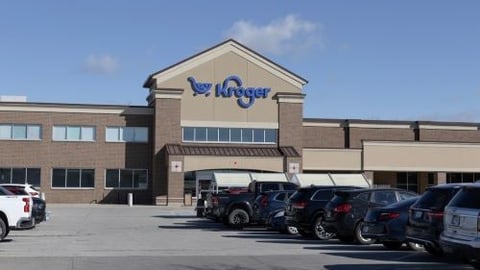Supply Chain Issues Ahead as Port Workers Walk Off Job
The anticipated strike by the International Longshoremen's Association (ILA) has begun. The group announced that it closed ports along the Atlantic and Gulf Coasts, as of 12:01 a.m. on Oct. 1. Those 36 ports handle 57% of the container volume in the United States.
Port workers walked off their jobs and set up picket lines in various port facilities after the union rejected the final offer made by the United States Maritime Alliance (USMX). More than 85,000 waterside employees belong to the union.
“USMX brought on this strike when they decided to hold firm to foreign owned Ocean Carriers earning billion-dollar profits at United States ports, but not compensate the American ILA longshore workers who perform the labor that brings them their wealth,” said ILA President Harold Daggett. “We are prepared to fight as long as necessary, to stay out on strike for whatever period of time it takes, to get the wages and protections against automation our ILA members deserve.”
The USMX, for its part, stressed that it had upped its wage increase offer to more than 50% over the proposed contract that extends over six years.
On Oct. 1, the U.S. Department of Transportation (DOT) released a statement noting that the agency met with businesses that expect to be impacted by the strike and reiterated the federal government’s hopes that negotiations will continue. “Our Administration supports collective bargaining as the best way for workers and employers to come to a fair agreement, and we encourage all parties to come to the bargaining table and negotiate in good faith — fairly and quickly,” the DOT declared.
Other unions weighed in on the work stoppage. “The International Brotherhood of Teamsters, including our members in the freight industry, stand in full solidarity with the International Longshoremen’s Association as they fight for a fair and just contract with the ocean carriers represented by USMX,” said Sean O’Brien, general president of the Teamsters. “Our ILA brothers and sisters play a critical role in keeping the American economy running, and they deserve industry-leading wages and robust job protections for the vital work they perform…Any workers — on the road, in the ports, in the air — should be able to fight for a better life free of government interference. “ O’Brien added that the Teamsters have a policy of not crossing picket lines.
As the rhetoric continues, analysts said that the strike will have a ripple effect on the supply chain, including shipments of grocery staples. According to an analysis by The Conference Board, a one-week strike could cost the domestic economy $3.78 billion.
“A port strike would paralyze U.S. trade and raise prices at a time when consumers and businesses are starting to feel relief from inflation,” observed Erin McLaughlin, senior economist at The Conference Board. “There’s no easy Plan B. While shippers have already begun diverting some cargo to the West Coast, capacity for such alternative options are limited.”
Another economist, Lauren Saidel-Baker at ITR Economics, agreed.” The U.S. dockworker strike across the Gulf and East coasts could snarl supply chains, setting up a scenario reminiscent of the pandemic-era logistics crisis. While shortages and delays are possible, the greatest economic impact will be in pricing, with greater inflationary impacts more likely the longer the strike persists,” she said. “The port strike could cause renewed goods-side inflation, although the impact would not be immediate. Many businesses still contend with elevated inventories in the aftermath of pandemic-era disruptions and bounce-back, which will likely create a cushion in the near term.
Moreover, Leslie G. Sarasin, president and CEO of FMI – The Food Industry Association, pointed to the ramifications of a labor action in the wake of the recent hurricane. “There’s never a good time for a strike. Now, the current strike is compounding the horrific situation in the Southeastern United States resulting from Hurricane Helene and parties need to return to the negotiating table,” she pointed out. “We must be focused on helping the communities and people devastated by Hurricane Helene. The strike on the East and Gulf Coasts by the International Longshoremen’s Association threatens to make the situation even more dire. This action has already begun to jeopardize food supply chain operations, and the strike has the potential to disrupt the long-term stability of markets and commodities, namely pharmaceuticals, seafood, produce, meat, cheese, ingredients, and packaging. We urge the negotiating parties to come to a swift resolution as we all focus on assisting these devastated communities.”
Ahead of the fraught final weeks of the presidential election season, the Biden Administration could step in and invoke the Taft-Hartley Act to temporarily block the strike. At this time, the White House indicated that it did not plan to take that step.
That said, the National Retail Federation called on the White House to reevaluate that stance. “A disruption of this scale during this pivotal moment in our nation’s economic recovery will have devastating consequences for American workers, their families and local communities. After more than two years of runaway inflationary pressures and in the midst of recovery from Hurricane Helene, this strike will result in further hardship for American families,” asserted Matthew Shay, NRF’s president and CEO. “The administration must prioritize our economy — and the millions of Americans who depend on it for their livelihood and wellbeing — and intervene immediately to prevent further hardship and deeper economic consequences."






